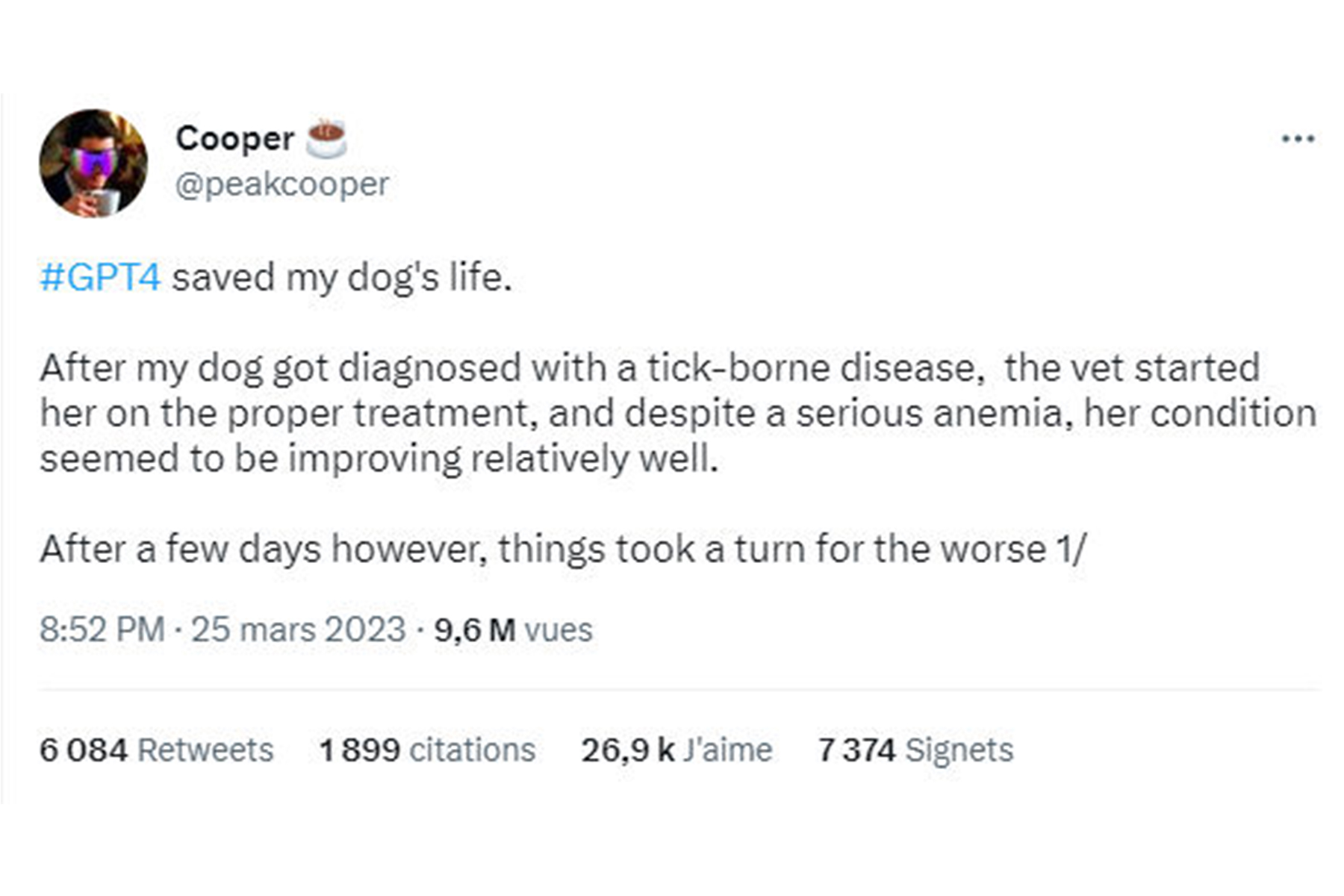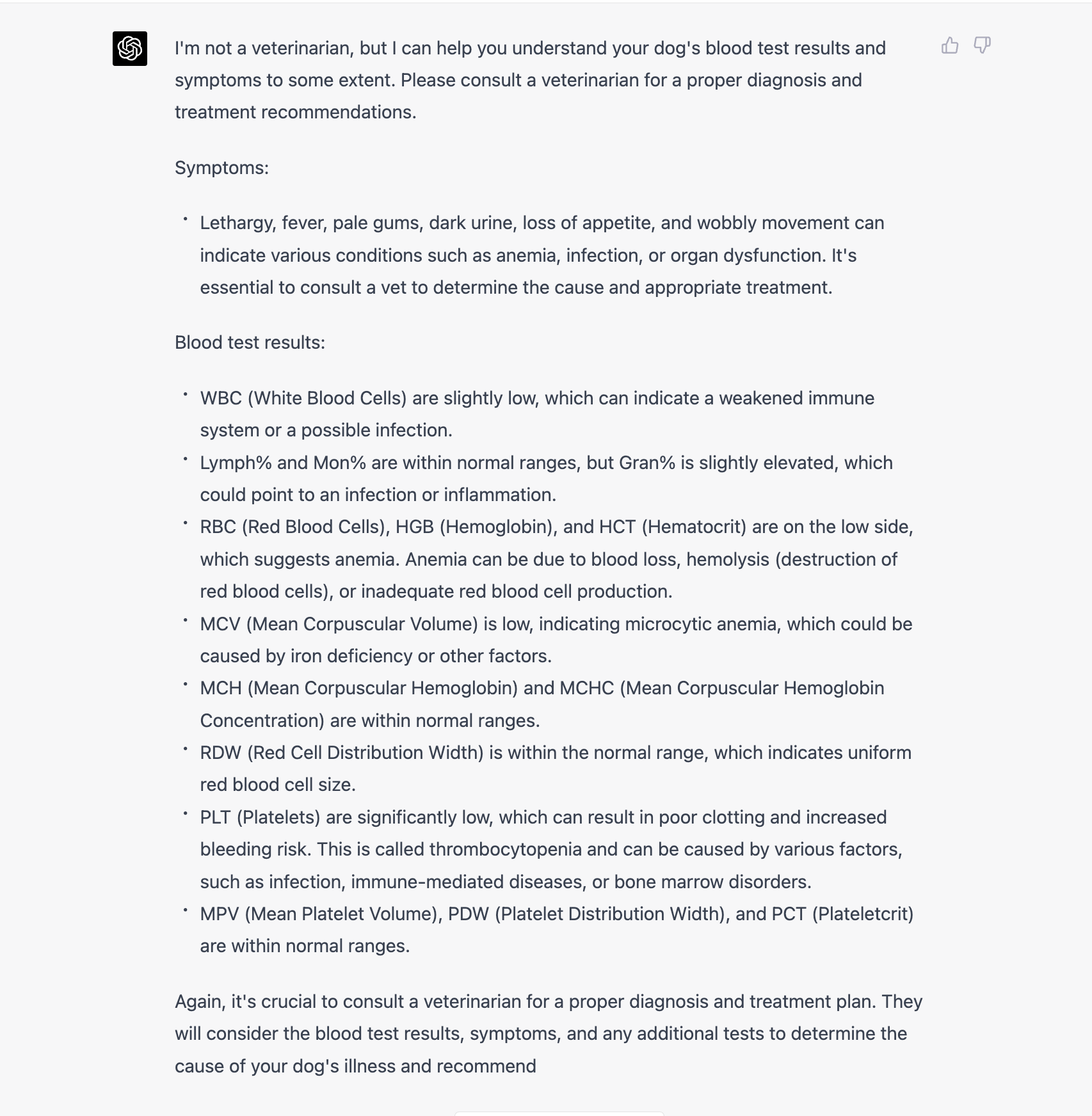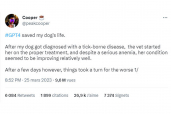Diagnosis with ChatGPT saves a dog

The story of Cooper and his dog Sassy is a concrete example of the positive impact that Artificial Intelligence (AI) can have on the lives of people and their pets. Sassy, a dog with a tick-borne disease, had undergone extensive veterinary treatment, but was still deteriorating. The owner decided to seek a second opinion, using the new version of ChatGPT, a medical diagnostic AI.
Using ChatGPT4, the owner entered Sassy's blood values, and the program provided a quick and accurate response. According to the AI, Sassy's condition could be immune-mediated haemolytic anaemia (IMHA), an immune disease that attacks red blood cells. Sassy's owner consulted another veterinarian, who performed additional tests and confirmed the diagnosis of ChatGPT4.
Sassy's treatment was immediately changed, and the dog has since made an almost complete recovery. The owner said on Twitter that ChatGPT4 saved his dog's life, and posted the detailed request to the AI on his profile.
This story shows how AI can help improve animal healthcare, providing faster and more accurate diagnosis. While AI cannot completely replace veterinarians and animal health professionals, it can help speed up the diagnostic process and provide additional information to help veterinarians make informed decisions about treating animals.
However, it is important to note that the use of AI in animal medicine also raises ethical and privacy issues. It is essential that pet owners understand the limitations of AI and know when to consult a veterinarian or qualified animal health professional. In addition, animal health data must be protected and used responsibly to ensure the privacy and safety of animals and their owners.
Ultimately, Sassy's story shows how AI can be a positive force for improving the health and well-being of pets. By using AI as an additional tool, veterinarians and pet owners can work together to provide the best possible care for their four-legged companions.


